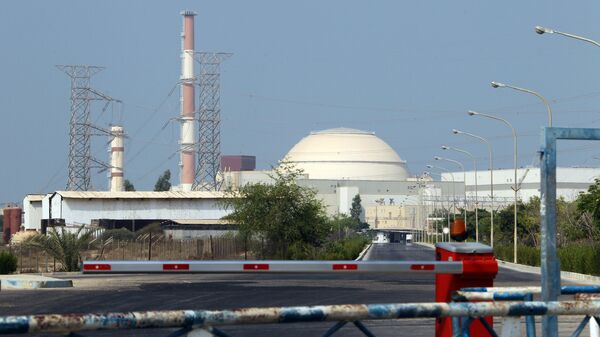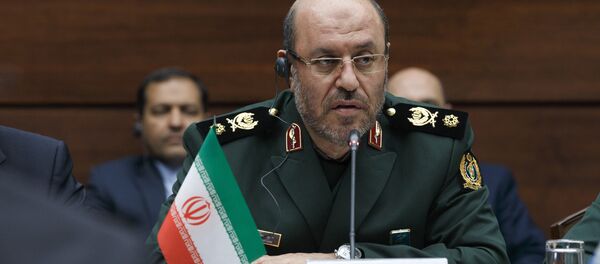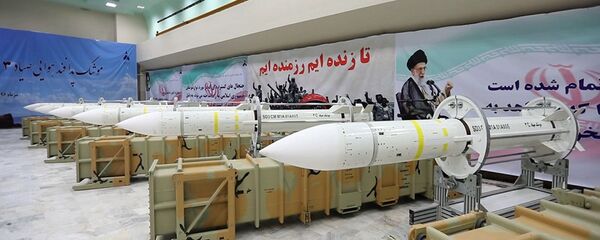The US "remains deeply concerned about Iran's malign activities across the Middle East which undermine regional stability, security, and prosperity," State Department spokeswoman Heather Nauert said July 18.
The US alleges that Iran "continues to test and develop ballistic missiles," in defiance of a UN resolution and the Joint Comprehensive Plan of Action (JCPOA) agreed to with six world powers in 2015, which put limits on Iran's nuclear program in return for the lifting of sanctions.
US President Donald Trump has repeatedly criticized the nuclear deal with Iran and Iranian Foreign Minister Mohammad Javad Zarif said that the new sanctions are a violation of the JCPOA and seek to undermine the accord.
"They have been talking about 'scrapping the deal,'" he said. "Then they came to realize that would not be globally welcome. So now they are trying to make it impossible for Iran to benefit."
Despite the best efforts of the US to rip up the deal, Washington is unlikely to succeed because of international support for the JCPOA, expert in Middle Eastern affairs Vladimir Sazhin told Sputnik.
"On the other hand, Europe and the European Union have always looked with great hope at Iran as a possible partner in their business projects. In addition, the removal of sanctions as a result of the JCPOA is also beneficial for China, Japan, South Korea, India and so on – these countries have always been interested in developing economic cooperation with Iran," Sazhin explained.
As a result, the White House is unlikely to exit the JCPOA. However, the Trump administration seems likely to continue imposing sanctions on Iran, in spite of the deal.
"Trump and his administration, gripped by Iranophobia that is supported by the Saudi and Israeli lobbies, can't reduce the fervor of political, diplomatic and economic confrontation with Iran. Moreover, the nuclear deal doesn't oblige Washington to suspend or not to impose sanctions against Iran as a punishment for other non-nuclear 'sins.'"
In imposing more sanctions against Iran, the US is implementing its obligations under the JCPOA "very badly," Mikhail Ulyanov, head of the Russian Foreign Ministry's Department for Non-Proliferation and Arms Control, said.
"In the appendix to the Joint Comprehensive Action Plan, there is indeed a call for Iran to refrain from launching ballistic missiles, but, firstly, it is just an appeal, not an obligation. Sanctions for failing to comply with this call are ridiculous," Ulyanov told RIA Novosti on Thursday.
"And, secondly, if you look closely at the language of the relevant provisions — this is Appendix B to the plan of the UN Security Council resolution — it is only about missiles that are specifically designed in such a way as to be able to deliver weapons of mass destruction. No one has been able so far to prove that the missiles that Iran tested had been specially designed in that way and, therefore, the cause for any punishment is non-existent," the Russian diplomat stressed.




